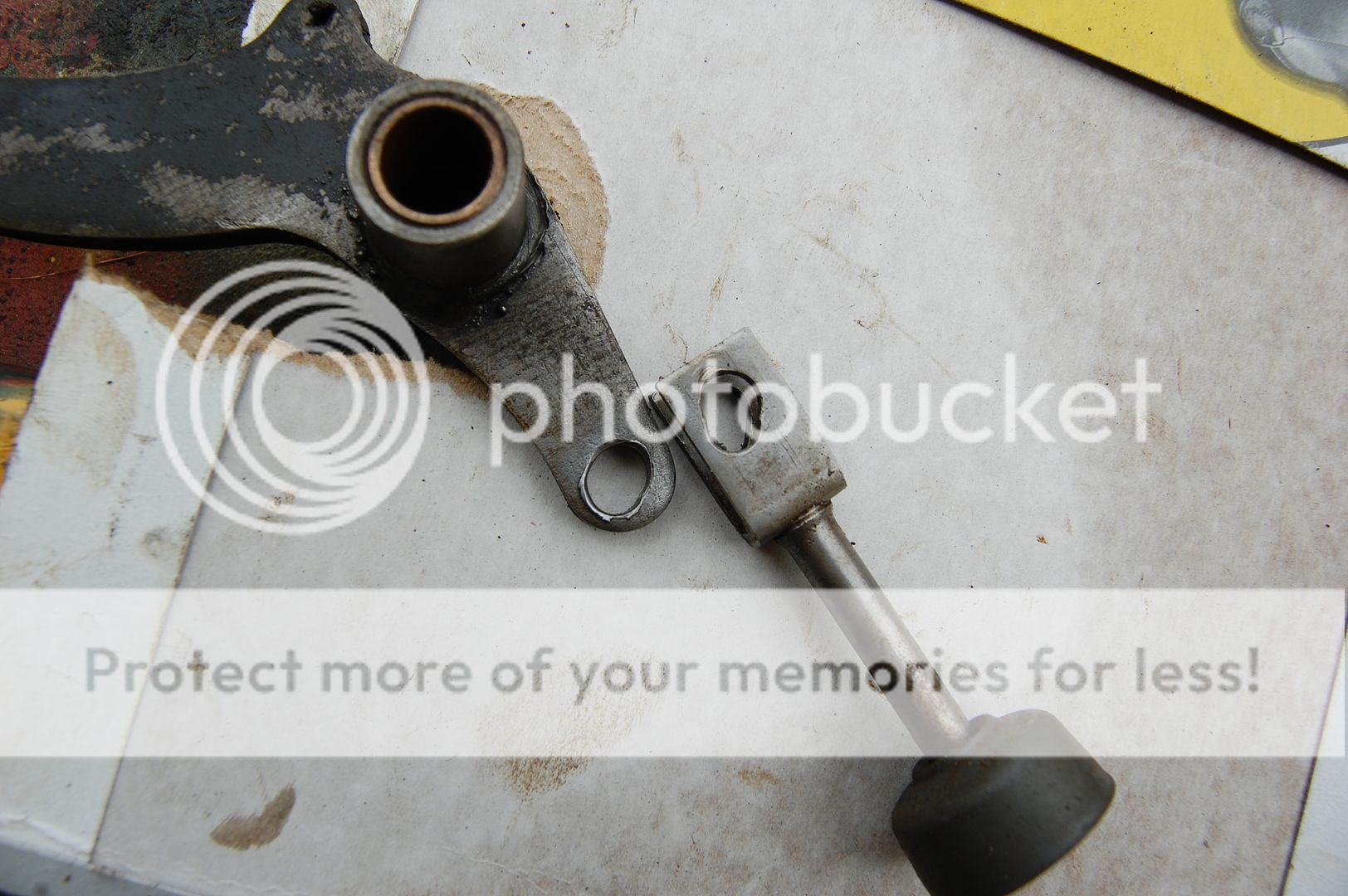aeronca65t
Great Pumpkin
Offline
Here's what I am working on today (see photo below). It's common problem in many British car (not just Spridgets).
The hole in the upper end of the clutch pedal (left in photos) has become elongated.
The holes in the yoke of the clutch master cylinder clevis are also elongated.
If either (or both) of these problems occur, you will "lose" clutch pedal action....almost like you need to bleed the clutch hydraulic system.
In some case, the clevis pin that connects them will also be worn.
Remember, just a <span style="text-decoration: underline">tiny</span> amount of slop in these holes translates into a <span style="text-decoration: underline">big</span> amount of lost motion.
Sometimes, folks will try to "make up" for this by lengthening the rod on the slave cylinder: this is incorrect.
I noticed this in the race car just before we went off to the PVGP. I managed to baby it by avoiding reverse gear and pumping the clutch pedal.....and got through both weekends of the races fine.
I'll fill the holes with a round piece of steel and weld the holes up fully. Then re-drill to the correct size. And will grease to prevent this from happening in the near future. This problem tends to happen more on the clutch pedal but can also happen on the brake pedal.

The hole in the upper end of the clutch pedal (left in photos) has become elongated.
The holes in the yoke of the clutch master cylinder clevis are also elongated.
If either (or both) of these problems occur, you will "lose" clutch pedal action....almost like you need to bleed the clutch hydraulic system.
In some case, the clevis pin that connects them will also be worn.
Remember, just a <span style="text-decoration: underline">tiny</span> amount of slop in these holes translates into a <span style="text-decoration: underline">big</span> amount of lost motion.
Sometimes, folks will try to "make up" for this by lengthening the rod on the slave cylinder: this is incorrect.
I noticed this in the race car just before we went off to the PVGP. I managed to baby it by avoiding reverse gear and pumping the clutch pedal.....and got through both weekends of the races fine.
I'll fill the holes with a round piece of steel and weld the holes up fully. Then re-drill to the correct size. And will grease to prevent this from happening in the near future. This problem tends to happen more on the clutch pedal but can also happen on the brake pedal.


 Hi Guest!
Hi Guest!

 smilie in place of the real @
smilie in place of the real @
 Pretty Please - add it to our Events forum(s) and add to the calendar! >>
Pretty Please - add it to our Events forum(s) and add to the calendar! >> 
